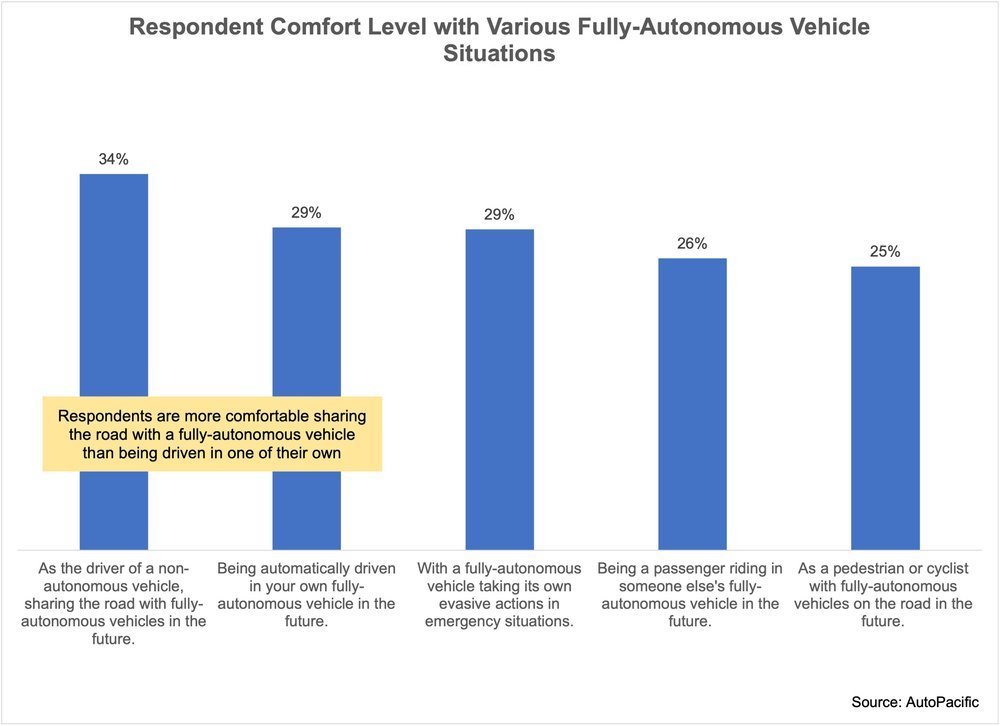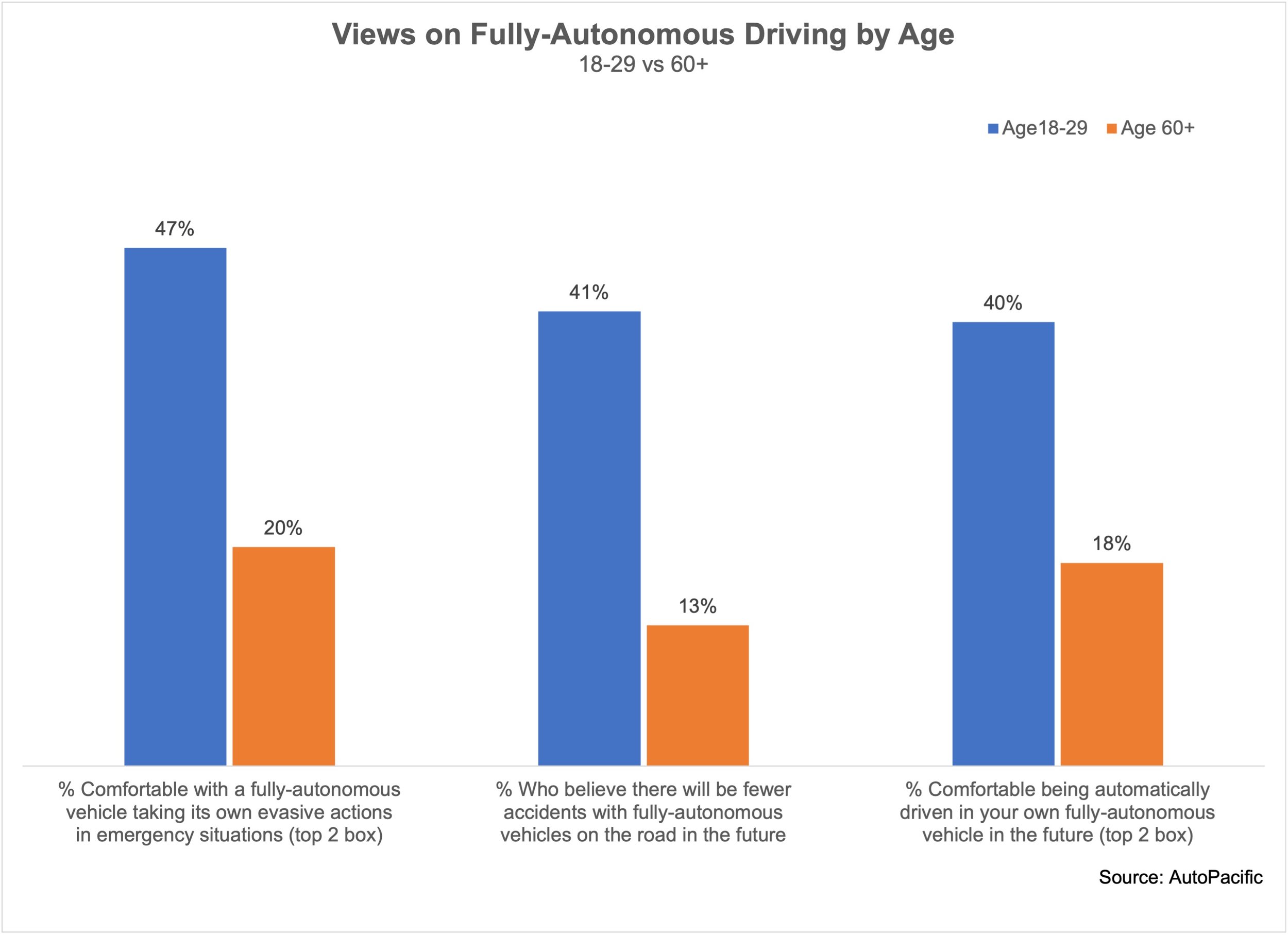Results of AutoPacific’s recently released Future Attribute Demand Study (FADS) show comfort and convenience features at the top of new vehicle shoppers’ wish lists. The annual study contains responses from over 11,700 licensed drivers in the U.S. who intend to acquire a new vehicle within the next three years. Respondents were asked a range of questions from what brands they will consider for their next new vehicle to what type of vehicle and powertrain type they intend to acquire, but most importantly, what features they want to have in that vehicle. AutoPacific’s 2023 FADS measures demand for 145 features ranging from autonomous driving to infotainment technologies to seating, including features specific to certain segments and powertrains.
The most wanted feature for 2023? LED fog lights. New to the survey this year, LED fog lights are desired by nearly half of all respondents (48%). In recent years, not only have fog lamps become common even on mid-grade versions of mainstream vehicles, but they have also largely made the transition to LED as they last much longer and emit brighter white light for improved visibility in adverse conditions.
Consumers Want the Convenience of In-Vehicle Wireless Charging
Wireless charging pads for portable electronic devices take two of the top 10 spots this year, 2nd and 5th, as 48% of new vehicle intenders want a wireless charging pad for front passengers and 40% would like one for rear passengers. “Cutting the cord has been a common theme in households for years and vehicles are following suit” says AutoPacific Market Research Manager Deborah Grieb. “From wireless Apple CarPlay to wireless device charging, providing consumers with a clean and convenient vehicle interior by ditching the cords has mass appeal.”
Source: AutoPacific 2023 Future Attribute Demand Study
An Autonomous Driving Feature Finally Finds A Big Audience
Also new to the survey this year is “unresponsive driver stop assist,” an autonomous driving feature that can automatically move the vehicle to the side of the road and come to a complete stop if the vehicle senses that the driver has become incapacitated. This feature is crucially important should a driver have a medical emergency, like a stroke, seizure, or lose consciousness. AutoPacific expects this feature to become more common in the coming years, especially as hands-free semi-autonomous drive features become more widely available.
“While autonomous driving features typically appeal more to males than females and younger consumers over older consumers, this new safety-focused autonomous feature does the opposite with slightly higher demand from females and greatest interest from those over age 60 (47%) and may help provide greater consumer acceptance and comfort with autonomous vehicle technology,” says Grieb.
About AutoPacific
AutoPacific is a future-oriented automotive marketing research and product consulting firm providing clients with industry intelligence, sales forecasting. The firm, founded in 1986, also conducts extensive proprietary and syndicated research and consulting for auto manufacturers, distributors, marketers, and suppliers worldwide, including its highly recognized Future Attribute Demand Study (FADS). The company is headquartered in Long Beach, California with affiliate offices in Michigan, Wisconsin, and the Carolinas. Additional information can be found at http://www.autopacific.com.
Ed Kim
AutoPacific
+1 714-838-4234
ed.kim@autopacific.com





